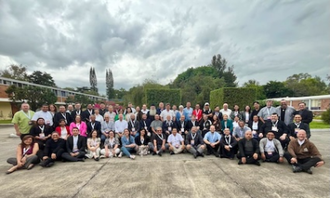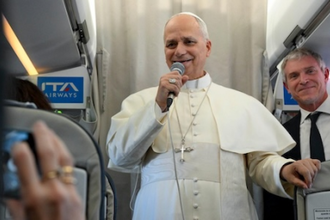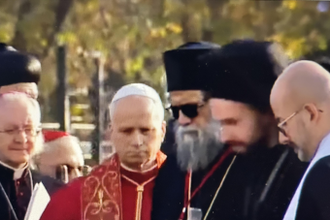Nicaea 1700 years in Latin America and Caribbean conference

The event brought together participants from 15 countries across Latin America. Photo: CELAM
The Latin American and Caribbean Nicaea 1700 Years conference took place in Guatemala City 1-3 July. Faith, unity, and hope is the theme that brought together more than 80 people from 15 countries across the continent.
Renewing the path of unity among Christians in Latin America and the Caribbean was one of the objectives of the regional gathering.
Promoted by the Roman Catholic Latin American and Caribbean Episcopal Council, the event was a space for dialogue to analyze the strengths and weaknesses of the path taken in ecumenism and interreligious dialogue with the perspective of generating scenarios for encounter and synodality.
Rodolfo Valenzuela, Bishop of Verapaz in Guatemala, has extensive experience in issues related to interreligious dialogue and ecumenism. This makes him one of the organizers of the event, which aims to create a platform for dialogue that brings people closer and prioritizes shared concerns.
"We are holding this continental gathering to address the ecumenical issue - that is, the issue of Christian unity in Latin America - because our challenges are different from the work on unity in Europe. The goal is to discern the challenges and identify opportunities for growth in communion," affirms Valenzuela, who also serves in the Joint Working Group between the World Council of Churches (WCC) and the Roman Catholic Church.
Among participants there were Lutherans, Anglicans, Methodists, Orthodox, Baptists, and Pentecostals. Participants discovered in the presentations the keys to understanding the contextual circumstances of Nicaea and its correspondence with the current history of believers.
WCC programme executive for church and ecumenical relations and communication, Dr Marcelo Schneider, brought greetings from the WCC general secretary and took part of a panel discussion on the legacy of Nicaea for ecumenical relations today.
"For us Christians committed to ecumenism Nicaea is still both a reminder and an inspiration. It shows that, even in the face of deep disagreements, the early church found a way to come together, to discern truth, and to articulate a common vision," he said. "We are all thankful to see that the conversations here opened new possibilities of ecumenical encounters in a region marked by estrangements in the area of ecumenical engagement over the last years."
A constant on the agenda of the Latin American and Caribbean meeting was that it included moments for sharing experiences in group work. These spaces were rich in encounters that revealed a shared interest in updating and embodying the legacy of Nicaea, not as a doctrinal relic, but as a living source for Christian mission, communion, and witness in today's world.
LINK
WCC special page: Nicaea 2025: https://oikoumene.org/events/nicaea-2025


















